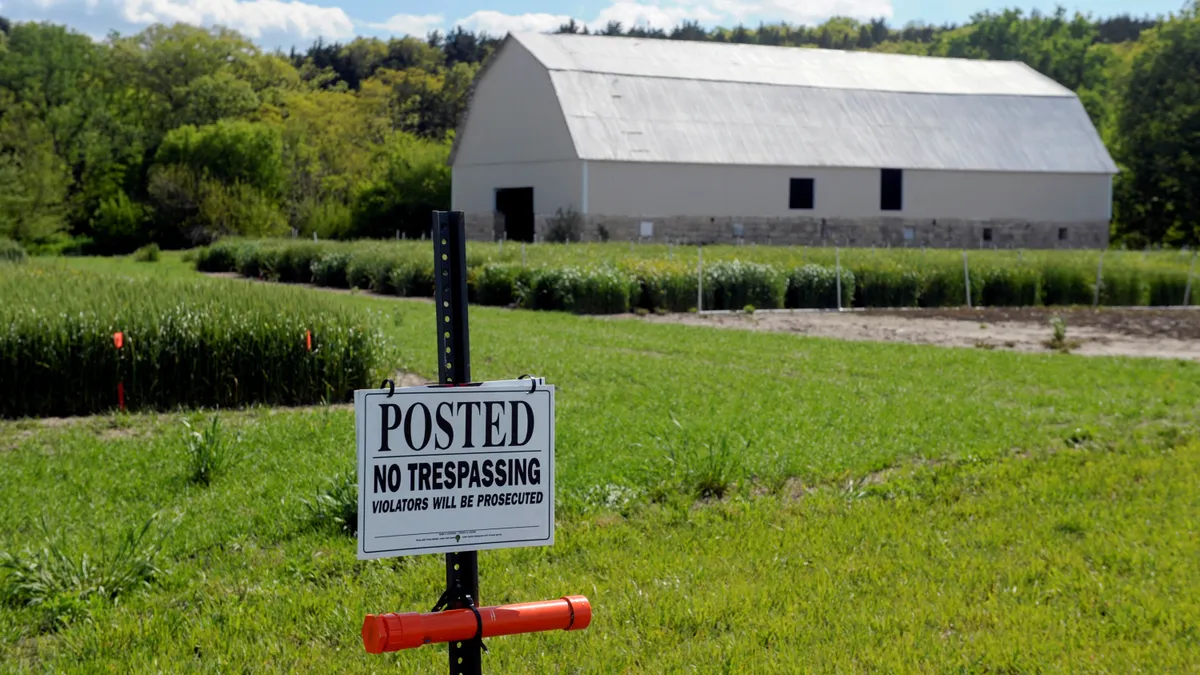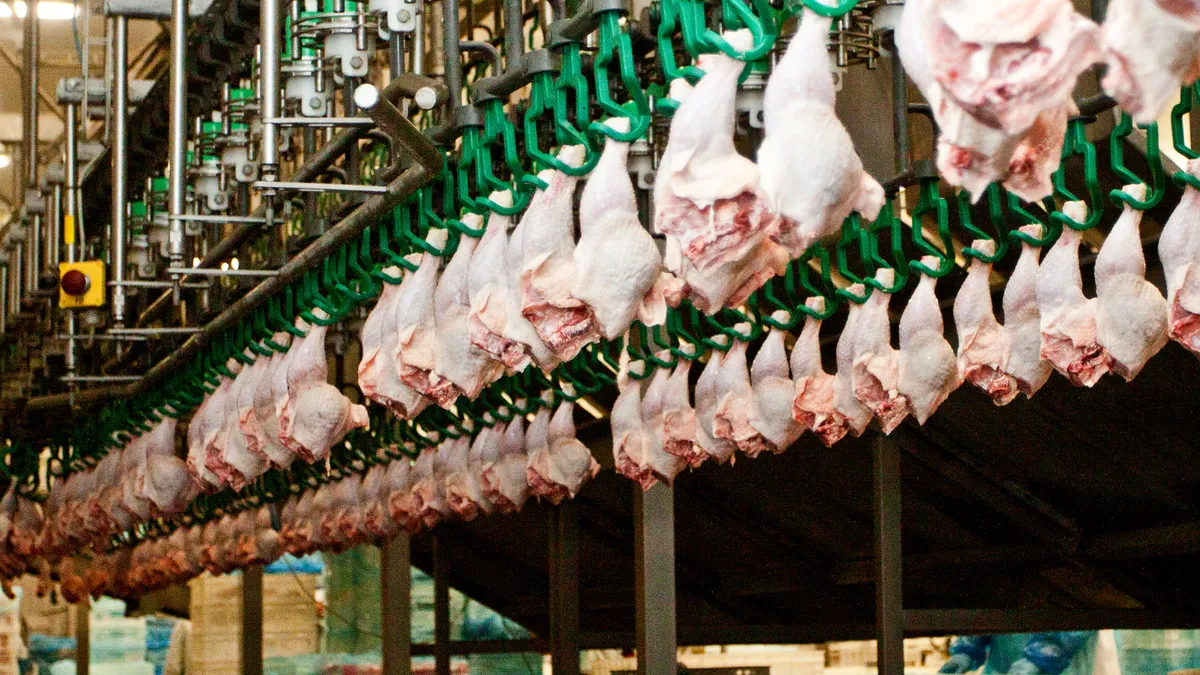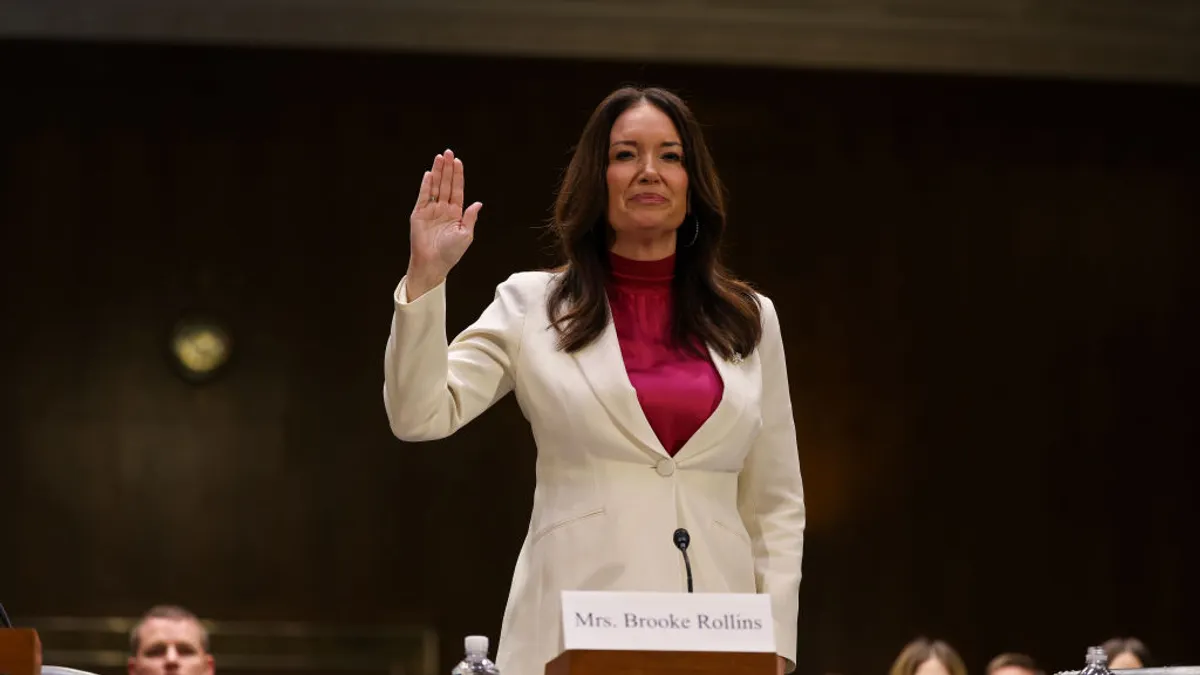Since 1984, an agricultural research center in Northeast Arkansas has been at the center of developing seeds and other farm products for agribusiness giant Syngenta. From looking into climate-resilient crops to testing soil health, the site has supported company efforts to expand the business and help Southern farmers grow yields.
But in late October, Syngenta received a surprising ultimatum from Arkansas Gov. Sarah Huckabee Sanders: sell the site, or face legal action.
"Arkansas will always protect our farmers and our national security interests," Sanders said during an Oct. 17 news conference, noting Syngenta's Chinese ownership represented a "clear threat to the state."
Chinese ownership of U.S. farmland has emerged as a flash point in ongoing tensions between the two countries, and a flurry of states this year have moved to pass laws to restrict land access. Sanders’ order marks a significant escalation in the debate, representing the first time a state enforced foreign ownership laws.
While Arkansas and other states have said restricting foreign ownership of land is necessary to protect national security, experts worry that it could exacerbate an already strained trade relationship between the U.S. and the world's largest agriculture importer.
“The order by the state of Arkansas is rather unprecedented and I would not be surprised if we see attempts by other states to follow suit,” said David Ortega, a food systems specialist and professor at Michigan State University. “It’s a very slippery slope.”
Taking aim at China
Stakeholders in China own a very small fraction of U.S. farmland, but a series of recent purchases have garnered national attention and sparked a frenzy of state and federal action to address what officials see as a national security concern.
China makes up a fraction of foreign-owned farmland in the US
Most recently, farmers and state lawmakers and Texas questioned a series of land purchases in Texas by Sun Guangxin, a billionaire from Xinjiang Province and a former captain for the People’s Liberation Army. The real estate tycoon spent an estimated $110 million buying up 130,000 acres in Val Verde County over the past few years, Forbes reported, and received pushback for a proposal to build a wind farm near Laughlin Air Force Base, a training ground for military pilots.
To stop construction and prevent Sun from accessing the state’s electrical grid, Texas lawmakers in 2021 passed the Lone Star Infrastructure Protection Act restricting entities with ties to political adversaries from gaining access to the state’s critical infrastructure.
Since then, a number of states have proposed or implemented their own foreign ownership laws. Most aim to place limitations on countries considered foreign adversaries, largely China.
China owns less than 1% of the total amount of land owned by foreign interests, though its share has been on the rise. Over the past decade, the acres of land owned by Chinese stakeholders has increased fivefold, largely attributable to Sun Gaungxin’s real estate empire and the 2013 acquisition of Smithfield Foods by China-based WH Group.
China's share of US farmland on the rise
As lawmakers increase scrutiny over reporting and states enact restrictive laws, Ortega said the relative size of agricultural land holdings, which includes forestland, owned by investors from China and other countries is miniscule.
“Foreign ownership has not been shown to affect land values, and given the very small share it represents it does not affect our ability to produce food,” he said.
History of foreign ownership laws
Despite renewed interest, foreign ownership of farmland has been a concern in the U.S. since its founding, with state laws evolving over the decades, said Micah Brown, staff attorney at the University of Arkansas’ National Agricultural Law Center.
The Declaration of Independence cited foreign ownership of land as a reason to break from English rule. Then, as settlers moved west following the Civil War, European investments grew along with concerns about whether other countries had enough controlling interests to disrupt U.S. statehood,
In the 20th century, states began passing laws that prevented Japanese immigrants from obtaining land during World War II and until the late 1950s. During the height of the oil crisis in the 1970s, Congress added requirements for foreign landholders under the Agricultural Foreign Investment Disclosure Act as oil-rich countries bought up U.S. landholdings.
Nearly half of U.S. states now have some form of a law restricting foreign ownership on the books. Several of the bills use language that restrict land holders from “foreign adversaries” or “countries of particular concern,” which are usually targeted at China, North Korea, Iran and Russia.
US 'adversaries' own little to no farmland
Some states have called out China directly in legislation. A Texas proposal to limit entities associated with China drew significant backlash this year. Florida Gov. Ron Desantis signed a law earlier this year outright restricting some Chinese citizens from owning farmland.
A judge ruled in August that Florida's law could be enacted, even though the Department of Justice said it violated the Constitution and would "cause serious harm to people simply because of their national origin.”
As Congress weighs action, trade relationships could be at stake
Building momentum across states has spilled over into Congress, where restricting Chinese ownership of farmland has become a rare bipartisan issue.
The Senate this summer easily approved a measure to prevent certain investments in U.S. agriculture by the Big Four as part of the annual defense spending bill. The legislation also gives top agriculture officials a permanent seat on the Committee on Foreign Investment in the U.S., which would be required to look at food-related criteria when reviewing transactions that could result in control of a U.S. business by a foreign company.
Nearly half of US states have restrictive laws on the books
Congress has grilled USDA on a three-year gap in enforcing disclosure penalties under AFIDA. Agriculture Secretary Tom Vilsack said earlier this year the agency has now doubled the number of people focused on implementing AFIDA, but there are still system gaps in knowing what transactions take place.
“Right now we are reliant on people basically self-reporting,” Vilsack said. “There is no mechanism for us to collect from 3,000 county organizations that record deeds every single day.”
As lawmakers push to ramp up enforcement activity, experts worry it could bring economic disruption to domestic and international markets. Smithfield Foods, for example, is the largest pork producer based in the U.S., but is owned by WH Group, a Chinese company. Action to force WH Group to divest holdings could bring disruptions to the U.S. pork industry.
China is the largest export market for U.S. food and agricultural products, but volumes have fallen over the past five years due to mounting trade tensions. Hypothetically, it would be far easier for China to replace where it sources those goods, than for the U.S. to find a new market, Ortega said.
“In my view there is no sound economic argument for banning foreign ownership of U.S. agricultural land,” he said.
Over a dozen states passed foreign ownership laws this year
In Arkansas, the order against Syngenta is already being met with criticism from the company, who says the decision will only hurt farmers.
“The actions by the state of Arkansas risk limiting Arkansas farmers’ options, raising their expenses and making them less competitive with other states,” Eric Boeck, regional director of North American seeds at Syngenta, wrote in a column for the Arkansas Democrat-Gazette.
Arkansas has already imposed and collected a $280,000 fine from Syngenta for failing to comply with its foreign ownership reporting requirements in a timely manner. The company declined requests for comment on whether it would sell the farmland in question.
Jason Pitcher, who joined Syngenta as a research associate and has worked at the facility in Bay, Arkansas for 15 years, wrote in a separate op-ed for the Gazette that the debate over foreign ownership ignores the U.S. farm families that work at the site. Pitcher grew up on a small family farm in Greene County, where he often would hear his grandfather lament about how difficult the Arkansas soil was for raising soybeans.
"The site in Bay is not there because China wants it there; it’s there because Arkansas and Southern growers must have it there," he wrote.




















